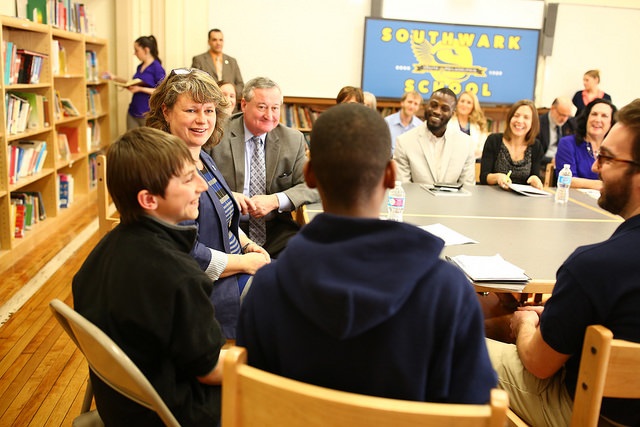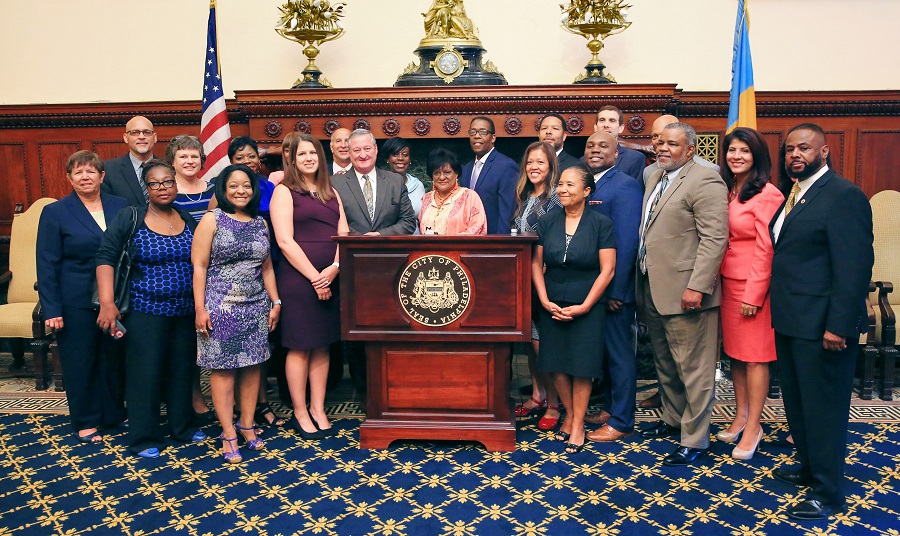“We cannot expect our children to succeed academically if they come to school too hungry, sick, or traumatized to learn.” – Mayor Jim Kenney
Today, Mayor Kenney and key local stakeholders announced the formation of nine community schools. The announcement follows months of public engagement and work by the Mayor’s Office of Education (MOE).

The community schools initiative was one of the hallmarks of Mayor Kenney’s first budget, passed by City Council in June.
Community schools are public schools where a full-time coordinator works with the entire school community – students, parents, teachers, administrators, service providers, and neighbors – to identify the community’s most pressing needs. Those needs often include expanded medical services, after-school programming, and job training.
By meeting the needs of the whole child and the neighborhood in which they live, community schools better support students and families and address non-academic barriers like violence, hunger, or homelessness – which too often keep students from succeeding in the classroom.
Mayor Kenney’s plan includes the formation of a total of 25 community schools over the next four years. The sweetened beverage tax, known as the “soda tax,” helps fund this vital support to Philadelphia’s public education system and neighborhoods.
MOE plans to roll out a number of community schools each year over the next four years.

To start the initiative, and for the 2016-2017 school year, the following nine schools have been selected as the first cohort of community schools:
- William Cramp Elementary School
- Murrell Dobbins CTE High School
- S. Edmonds Elementary School
- Edward Gideon Elementary School
- Kensington Health Science Academy
- Logan Elementary School
- Southwark Elementary School
- South Philadelphia High School
- Tilden Middle School
A total of 31 schools applied to be part of the initiative. The second cohort of community schools will be announced in spring 2017.
Among the criteria for school selection was principal and staff willingness, childhood poverty and neighborhood crime rates, health risk factors, support for English language learners, and geographic distribution across the city. Community investment and eagerness to participate were also factors.
MOE encourages all schools to apply or reapply for the next cohort of community schools. An application will be released in winter 2016-2017 for schools interested in joining the next round.
Open positions relating to the initiative are now on the City’s jobs site.
In the short term, selected community schools sites will see increased access to programs, increased participation in existing programs, expanded services, and improving satisfaction rates from parents, teachers, students, and service providers. Over the next two years, MOE anticipates health indicators and attendance improving.
Together with academics, researchers, and the School District of Philadelphia, MOE will present an evaluation plan in October 2016, too.
